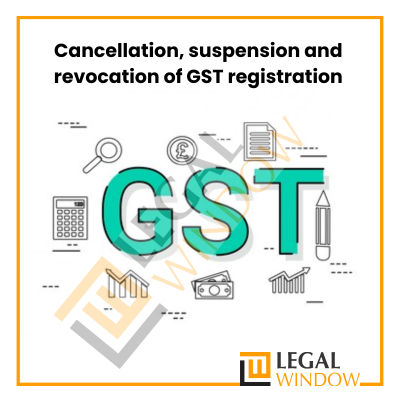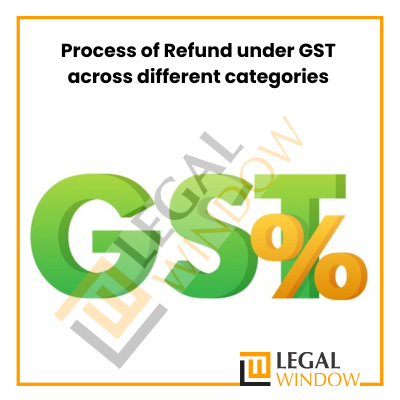Trust implies the transfer of a property (cash, shares or valuable asset) from the owner to another person. There are two types of trusts – Private and Public. A private trust is formed for the benefit of a group of people. Public trust is formed for the benefit of the general public. Trust Registration is an easy process and the very foremost requirement of registration is a Trust Deed. Before jumping into the procedure let us first understand what exactly trust is?
Meaning of Trust as per Indian Laws
In India a trust is registered under Indian Trust Act, 1882. Primarily there are two parties in a trust i.e. a Trustor/Owner and a Trustee. In generalized sense a Trust is confirmation where the owner of the Trust transfers its property to another party called as Trustee with an object to provide the benefit to the third party.
The transferring of property from the owner to the trustee is with a proclamation that the property so transferred should be held by the trustee in a bonafide way and for the beneficiaries of trust.
Benefits of Trust Registration in Jaipur
- Involvement in Charitable Activities: The common objective of forming a trust is involving in the charitable activities simultaneously collecting benefits for successors.
- Tax Exemptions: If a trust is registered it can avail many tax exemptions which one of the important aspect of forming a trust.
- Aid to poor people: It provides an aid to the poor people if registered and also helps the public in conducting the charitable activities in fair manner.
- Safety from legal breaches: If a trust us registered under Indian Trusts Act, 1882, compliance of law becomes mandatory which provides a safety to the trust and avoids legal complications.
- Safety of wealth of family: Sometimes a trust is created to utilize its own specific assets, such as land/an interest in a family business, which is generally not suitable and possible for a settlor to split between individuals.
Hence, usage of a trust provides such individuals to benefit from the assets inspite of the fact that they do not own them. A trust also helps in assisting the capital value of such assets for future generations. - Forced Heir ship: The Residents of a country with the fixed laws of legacy may be able to utilize the trusts to get the agility they offer in respect of the distribution of all or part of their assets to the beneficiaries who could otherwise not be permitted to benefit under the laws of their country of the residence.
Professional guidance must be taken from legal experts in their nation of residence/nationality for such planning.
Parties involved in Trust Registration Process in Jaipur
The following are the parties involved in trust registration:
- Trustor: The trustor is the person who creates the trust. The trustor is usually the owner of the trust.
- Trustee: The Trustee is an individual that holds the trust property which is given by the trustor.
- Beneficiary: The beneficiary is an individual for whom the trust is created. The beneficiary is a third party who may be known to the trustor and trustee.
Who All Can Form Trust in Jaipur?
- A competent individual who is over 18 years of age
- A person who is mentally sound can create a trust for any legal purpose(s).
- Who is not anywhere rescinded by the law
- Not only human beings can form trust but a company, firm, society or association of persons are also capable of creating a trust.

Can A Minor Form a Trust?
In case of a minor, following points are to be checked: –
- a guardian who is appointed by the court or
- of whose property the superintendence has been assumed by the court of wards the age of majority is twenty-one years.
A trust can be executed by or on behalf of the minor with the approval of a principal civil court of original jurisdiction.
Types of Trust in Jaipur
Basically in Jaipur, there are two types of trust i.e. private trusts and public trusts.
- The private trusts are governed by the Indian Trusts Act, 1882 while the public trusts are divided into further two categories i.e. charitable and religious trusts.
- The Charitable and Religious Trust Act, 1920, the Religious Endowments Act, 1863, the Charitable Endowments Act, 1890, the Bombay Public Trust Act, 1950 are some of the statutes for the enforcement of public trusts in India.
- Amendment has been made where trust can be used as a vehicle for investments for e.g. mutual funds and venture capital funds which are regulated and governed by Securities and Exchange Board of India (SEBI).
The type and classification depends on motive of formation which can be following: –
- Simple Trust – In this Trustee is majorly acts a passive depository of the Trust property and does not perform any active duties and no directions are given to him.
- Special Trust – In this trust special powers are provided to the trustee and the trustee actively participates and acts an agent to execute the trustor/owners wishes. This Trust is called as operative trust.
- Private Trust – This is most executed form of trust which is created primarily for benefit of one or more particular individuals who are the beneficiaries of the trust
- Public Trust – This type of trust is created for the general public or a class as a whole where the beneficiary is the general public. These are majorly charitable trust executed for public welfare.
- Express Trust – Here, the Settlor creates a Trust over his assets either in present or upon his death. It can be either by way of a will or Trust deed.
- Implied Trust – This type of trust is executed at the time legal requirements for an Express Trust are not met, but the intention creation of this trust is presumed before its creation.
- Others depending on the type of object(s).
Documents Required for Forming Trust in Jaipur
- Identity proof of trustor and trustee
- Address proof of trustor and trustee
- Address proof of the Registered Office
- In the case of rented property, NOC from the Landlord is required
- Trust Deed on Proper Stamp Value.
- Photographs of all the parties.
Procedure of Forming a Trust in Jaipur
Here is the procedure to form or register a Trust in Jaipur:
- Selecting a suitable Name: The very first step for registering the Trust is to select a suitable name for the trust. While registering an applicant should take care of the name selected as the same should not be restricted under list of names as per the provisions of the Emblems and Names Act, 1950.
- Drafting of Trust Deed: Now the second most important step for is drafting of trust deed. A trust deed is a document which contains all the important information related to the registration of a trust and it should contain all the role and responsibility of trustee and the beneficiary along with the other particulars as this deed must be presented before the Registrar at the time of registration.
- Selecting Settlers and Trustees of Trust: The next step is to choose the settlor and Trustees of the Trust. However, there are no specific conditions with respect to the number of settlers/authors.
Although, there should be a minimum of two trustees to form a Trust. - Preparing objectives of the trust: To formulate the Memorandum of Association i.e. the objectives of a trust the same must be presented in the trust deed as it defines the scope of work of the Trust.
- Paying The Requisite Fees: The next step is to pay a requisite fee for the registration of trust
- Collection of A Copy of Trust Deed: Once the the papers are submitted and applicant can collect a certified copy of the Trust Deed within 1 week from the registrar’s office.
- Submitting the Trust Deed to Registrar: The copy of Trust Deed must be submitted with the local registrar. Along with the properly attested photocopies.
- Obtain Registration Certificate: The last step is obtaining the registration certificate which will be provided by the registrar who keeps a photocopy and returns the original registered copy of the Trust Deed to the applicant
Is It Obligatory to File E-Return for The Trust?
Yes, it is necessary for a trust to file a return electronically with or Without a Digital signature.
However, trusts who are liable to get its accounts audited section 44AB shall furnish the return electronically.
Note: The Finance Act of 2020 has released specific new compliance responsibilities on Charitable Trusts and all Exempted Institutions. Requirements of registration under section 12AA or section 12A will become redundant, and new section 12AB will come into force. All the prevailing registered trusts under the preceding section 12A or section 12AA would transfer to the new provision under section 12AB.
Conclusion
It may be noted that trust must meet certain eligibility criteria in case the trust is interested in obtaining funds. A trust should have a legitimate enlisted trust deed. In case you need more information on trust registration or related laws, consider reading our blogs.
Frequently Asked Questions
- Is it necessary to get the trust registered?
Yes, it is necessary to register a trust when it is declared by a non-testamentary instrument.
Though the instrument is exempted from registration under Registration Act 1908 but then also it is necessary to register a trust,
In the case of private trust which is declared through will, does not become mandatory even it involves an immovable property.
For claiming exemption under Section 11 of the Income Tax Act 1961 by any charitable or religious trust including any immovable property shall mandatorily get themselves registered. - Who is entitled to sell the property under Trust?
If the situation of sale arises the trustee can sell the trust property under subject only if he is specifically empowered under the trust deed so executed.
He/she is free to sell the entire property under one or more series of transaction and can be done through holding public auction or privately. - Who has the right to title?
Trustee has a right to possess the instrument of trust and is also entitled to keep the documents related to trust property. - What are the tax liabilities applicable on a trust?
A trust which acquires a certificate of 12A from the Income Tax Department is exempted to pay tax for the entire lifetime on its surplus income.
Additionally, they are required to obtain Certificate of 80G which allows donors, that is persons or organizations making donations to an 80G certified NGO, to avail deduction and hence the donation made also become tax free. - What the main head which are to be stated in a trust deed?
Following points should be taken care while drafting a trust deed.
- Specific clauses related to the Trustees and the Settlers, Object and beneficiaries, General Body Members and the Registered Office
- Details of the bank account associated with your trust
- Date of executing the Deed
- Organizing several meetings every year.
- How is public trust controlled?
A trust may be registered as a public trust even though the control of the trust property is not vested in the public but the same is retained by the settlors.
However, the funds of that trust are utilized for the welfare of general public and the general public is the beneficiary which makes it clear that the trust is public and can be headed and controlled by a private entity.
LegalWindow.in is a professional technology driven platform of multidisciplined experts like CA/CS/Lawyers spanning with an aim to provide concrete solution to individuals, start-ups and other business organisation by maximising their growth at an affordable cost. Our team offers expertise solutions in various fields that include Corporate Laws, Direct Taxations, GST Matters, IP Registrations and other Legal Affairs.
Categories
- Agreement Drafting (23)
- Annual Compliance (11)
- Change in Business (36)
- Company Law (147)
- Compliance (88)
- Digital Banking (3)
- Drug License (3)
- FEMA (17)
- Finance Company (42)
- Foreign Taxation (6)
- FSSAI License/Registration (14)
- GST (116)
- Hallmark Registration (1)
- Income Tax (199)
- Latest News (34)
- Miscellaneous (164)
- NBFC Registration (8)
- NGO (14)
- SEBI Registration (6)
- Section 8 Company (7)
- Start and manage a business (20)
- Startup/ Registration (126)
- Trademark Registration/IPR (40)
Recent Posts
About us
LegalWindow.in is a professional technology driven platform of multidisciplined experts like CA/CS/Lawyers spanning with an aim to provide concrete solution to individuals, start-ups and other business organisation by maximising their growth at an affordable cost.







